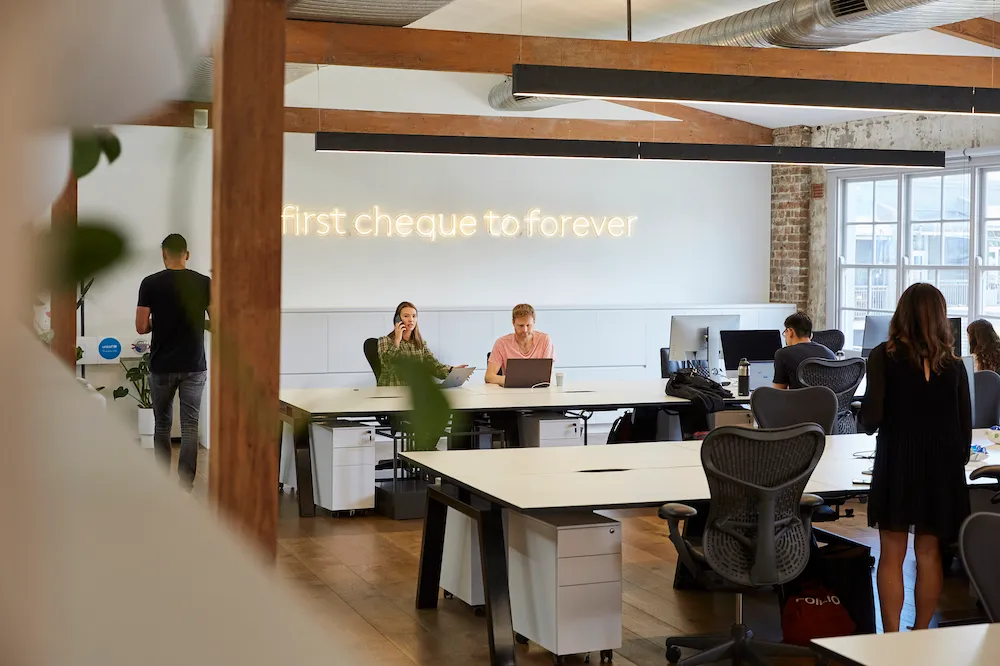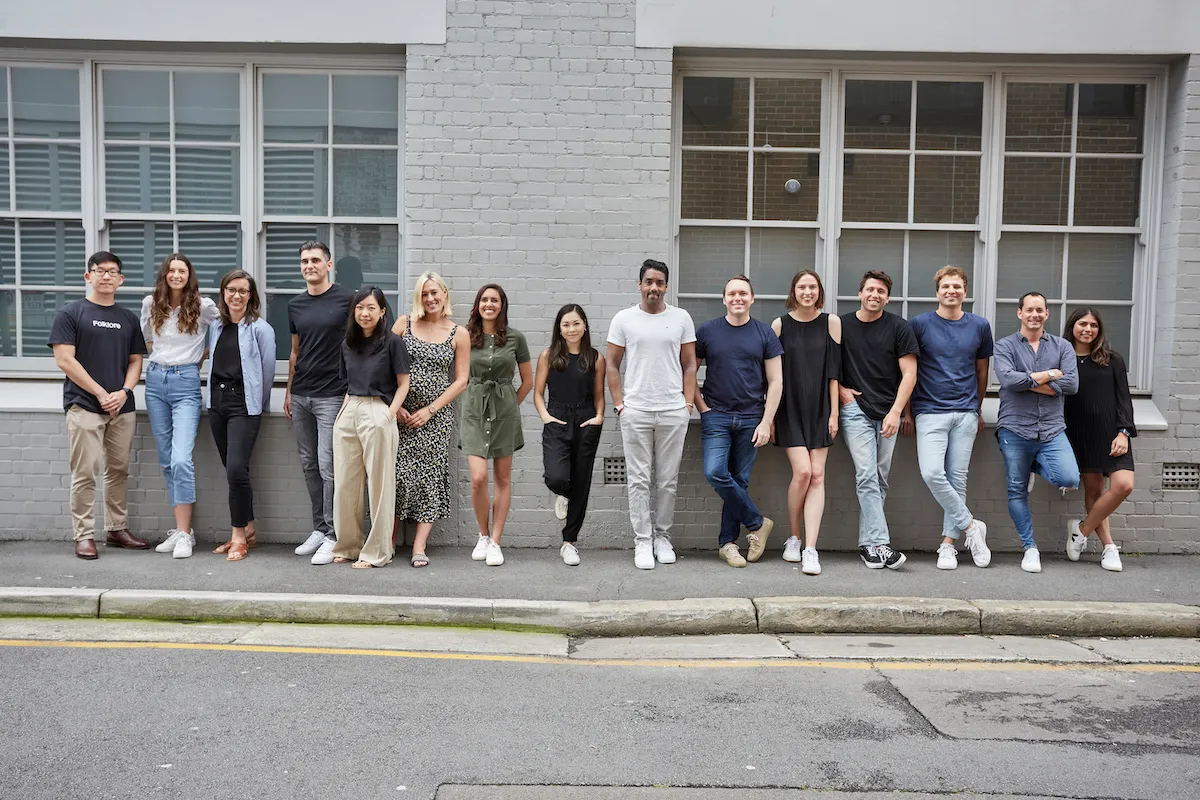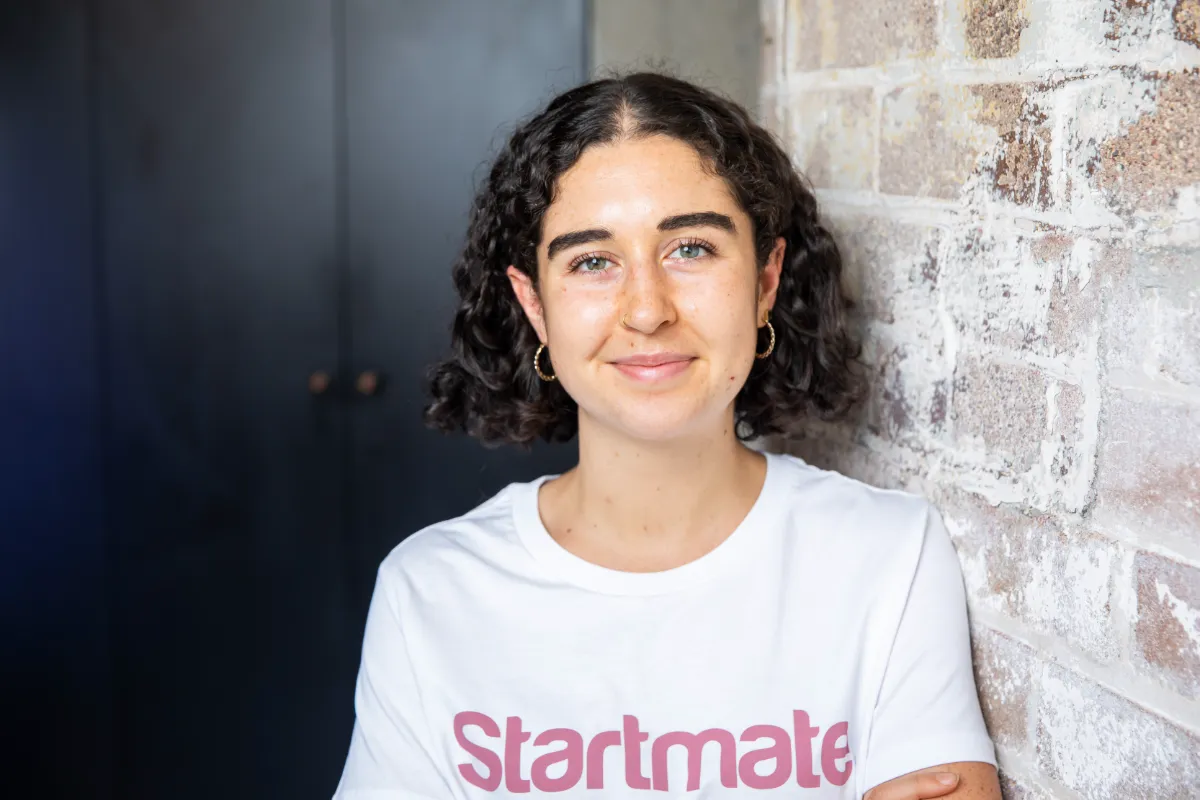When asked to sum up the Folklore experience in five words, Folklore Chief of Staff Bree Kirkham says bold, ambitious, unconventional, good-humoured and smart.
Folklore is a ‘first cheque to forever’ investment firm that believes in the power of founder vision, and the potential of teams, right from the start.
In this Q&A, Bree and I speak about scaling, maintaining a bold brand, driving diversity and the preservation and enhancement of culture.
Key stats
- Founded in 2013 as Tempus Partners by Alister Coleman.
- Andrew Larsen and Hannah Field have since joined the partnership.
- Rebranded to Folklore in early-2021.
- 17 full-time employees.
- Sydney-based team with a new Redfern HQ.
Unpacking culture
So Bree, what does culture mean to you?
To me, it really is the fabric that sits behind the firm. It’s what you can’t see, but what you feel.
Culture is a huge component of why people want to work somewhere. Culture is the feeling that sits behind all the work that they do. It’s a feeling ignited within people.
It’s a fundamental fabric that you need to proactively address if you're in a role like mine, to ensure that you're really giving your firm the best opportunity for success.
What steps have you taken to manage culture as you scale?
When you have grown from a firm of 10 to 17 in the past year as we have, you have to be mindful of the impact this can have on culture, especially as we continue to grow. The converse of this is that adding more people to a team can be a huge positive, and that's really how we're trying to approach it.
As we scale, something that's very important to me is that the recruitment process is well managed, and that employees are involved in that process.
When I say ‘have employees involved’, I mean ensuring they're across all of the roles that we’re hiring, making sure they understand the types of people we’re looking for so that they can go out to their own networks and encourage people to join the firm, and ensuring they are involved in the recruitment process.
It’s also about making sure they understand what the impact is for them when new people join. Sometimes it's someone more senior, sometimes it's someone more junior. Regardless, having an open and honest conversation about what that impact will be is paramount to preserving their morale and also the culture of the firm.
What are common misconceptions about your company and its culture?
It's so hard because I don't know what people are thinking externally, but thinking about venture capital more broadly, people might think of a white shirts, male-dominated, private equity, numbers-heavy, corporate style of work.
I honestly think it’s the opposite here.
Folklore is bold. The people who work at Folklore are intelligent, highly educated, very loyal, very dedicated, very caring people. When you couple this intelligence and also this high IQ together, you get this beautiful boldness.
It's a really exciting, energetic, creative place to work.

Zooming in
How are your teams structured?
Our firm is split between an investment team and an operations team, but we collaborate closely with one another on a regular basis.
How are your weekdays and workdays structured?
They are extremely varied and often jammed with meetings. Each day, I aim to spend time on firm strategy and deliverables, time with the partners and with the team, a tonne of time synthesising information, responding to emails, engaging with external stakeholders and moving projects along.
My days are varied with the potential for chaos, but I love making order out of chaos and I love the depth and breadth of my work. It’s a privilege to be honest.
How many people are in your leadership team?
Our leadership team is made up of our Partners, and a lead across each of the verticals that form our structure.
COVID restrictions aside, how many of your employees work remotely?
We take a flexible approach to working, and currently have a hybrid arrangement with one fully remote employee. That being said, we thrive off each others’ energy and find that most people come into the office.
Hiring and diversity
How does Folklore hold itself accountable for driving diversity?
Firstly, we use Applied. So we don’t look at CVs, and we certainly don’t look at gender or age or the number of years of experience.
We look purely at the responses applicants have to questions we’ve spent quite a long time crafting. This sifts out any unconscious bias. And from there, we interview the candidates that come to the top.
Separate from this, we are the first venture capital firm in Australia on the ILPA Diversity in Action register. This was really exciting for us, and it acknowledges the work that we're doing.
We're always mindful of who we're hiring and what this means for our D&I.
We are mindful that maintaining this balance is sometimes easier or harder depending on the role you're hiring for. We are really looking to ensure that each team and each vertical within the business has diverse representation.

_____ is the best policy
How have you been maintaining morale during COVID, and what changes will you take into the future of work?
We’ve now had 13 weeks where everyone has worked remotely. Looking forward, we are going to be thinking a lot about balancing coming into the office with working remotely, knowing that people have adjusted to that, and in some instances, people prefer that.
I think we will continue with our morale boosters too. We may not have to send as many gifts to your door, but I think it's really important to always be mindful of doing little things that really help to stimulate morale and surprise and delight.
The future of work, certainly from my perspective, isn’t ‘let's go back to how it was’, but rather, what have people enjoyed and what is working and how can we bring it all together?
What’s the policy or initiative you’re most proud of?
One of the initiatives that I'm proud of is that we've encouraged our staff, as and when they need, to take additional days of leave. These aren't days that are logged. We really just allow them and trust them to acknowledge a day here or there when they need to have a break.
We've found that people are taking a half-day here and there or adding one day to extend their weekend. It's been a really beautiful thing to watch come to life, because people have lent in and asked for those moments when they need them, and consistently worked hard around that.

It’s all fun and games
Tell me about the fun things you do at your HQ.
We do Folklore Fun Fridays, where we do quizzes or a pottery class, for example. It’s a way to try and end the week on a high, knowing that we're not all in the office having drinks and chatting in person.
Sometimes we dress up, think ‘dress as your favourite country’ or ‘dress as what you wanted to be when you grow up’.
Jess Zhang, for example, came to ‘dress as what you wanted to be when you grew up’ as a hotel owner. She had a cute little scarf and the Ritz Carlton behind her. That is something she would love to do if she wasn’t doing what she’s doing. It was an amazing insight.
What plans do you have for the future?
I think this is two-sided. I’ve mentioned we will continue to grow in the next three months, so I think there is a preservation of culture as well as an enhancement of culture.
On the preservation side, I really do believe we've got such a beautiful culture. Our office vibe surveys show this. So I am seriously conscious of how we can preserve this when we're literally going to double the firm in the next 12 months.
In terms of initiatives that I'm thinking of, I am getting the team involved in recruitment. I am also considering a buddy system, to match the more tenured colleagues with new hires, to ensure who they are and what they represent continues on.
And from a culture enhancement perspective, new people can have a really positive effect on culture. So, how can we learn from our new hires? How can they push us forward? How can they make us aware of our blind spots? How can we learn from their past experiences? How can we get their feedback on the onboarding process?








